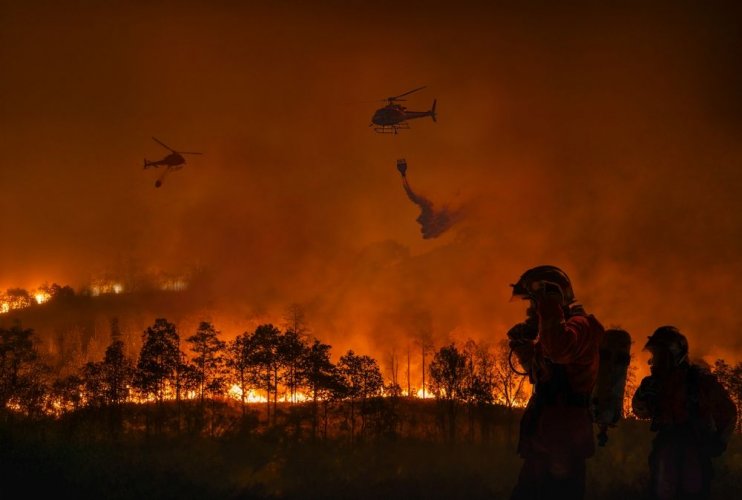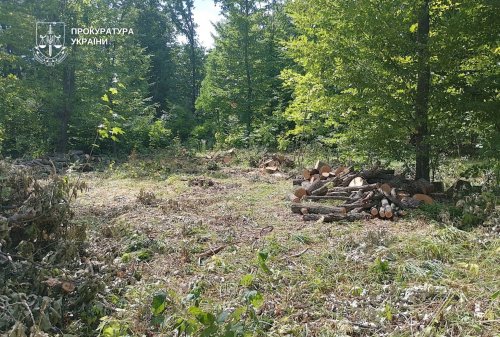On October 4, large-scale fires broke out in protected areas in the Dnipro and Zaporizhzhia regions.
EcoPolicy journalists analyzed the details of the recent fires.
1) More than 3 hectares of ecosystems burned down in Zaporizhzhia.
The largest fire occurred near a settlement in Zaporizhzhia district as a result of Russian shelling of the region, where dry grass burned on an area of 2 hectares. The fire has now been localized and extinguished.
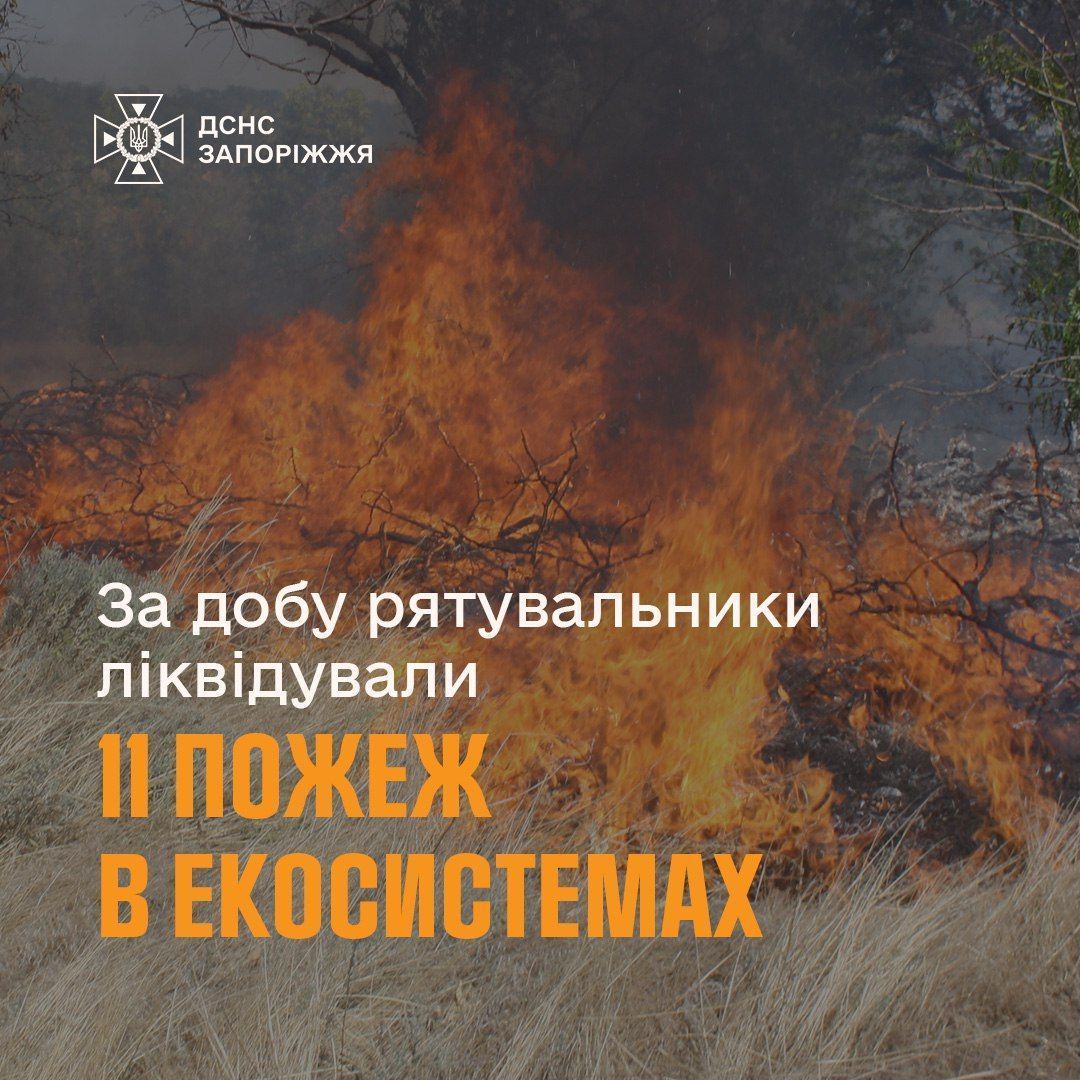
Photo: gu_dsns_zp
The fires in Zaporizhzhia region involved 62 rescuers and 13 units of SES equipment, as well as 2 firefighters and 1 unit of local firefighting equipment.
2) In the Dnipropetrovs'k region, the fire has engulfed almost 3 hectares of natural ecosystems.
In the city of Samar, Dnipro region, outside the village of Sokolove, dry grass and reeds caught fire on 2.9 hectares.
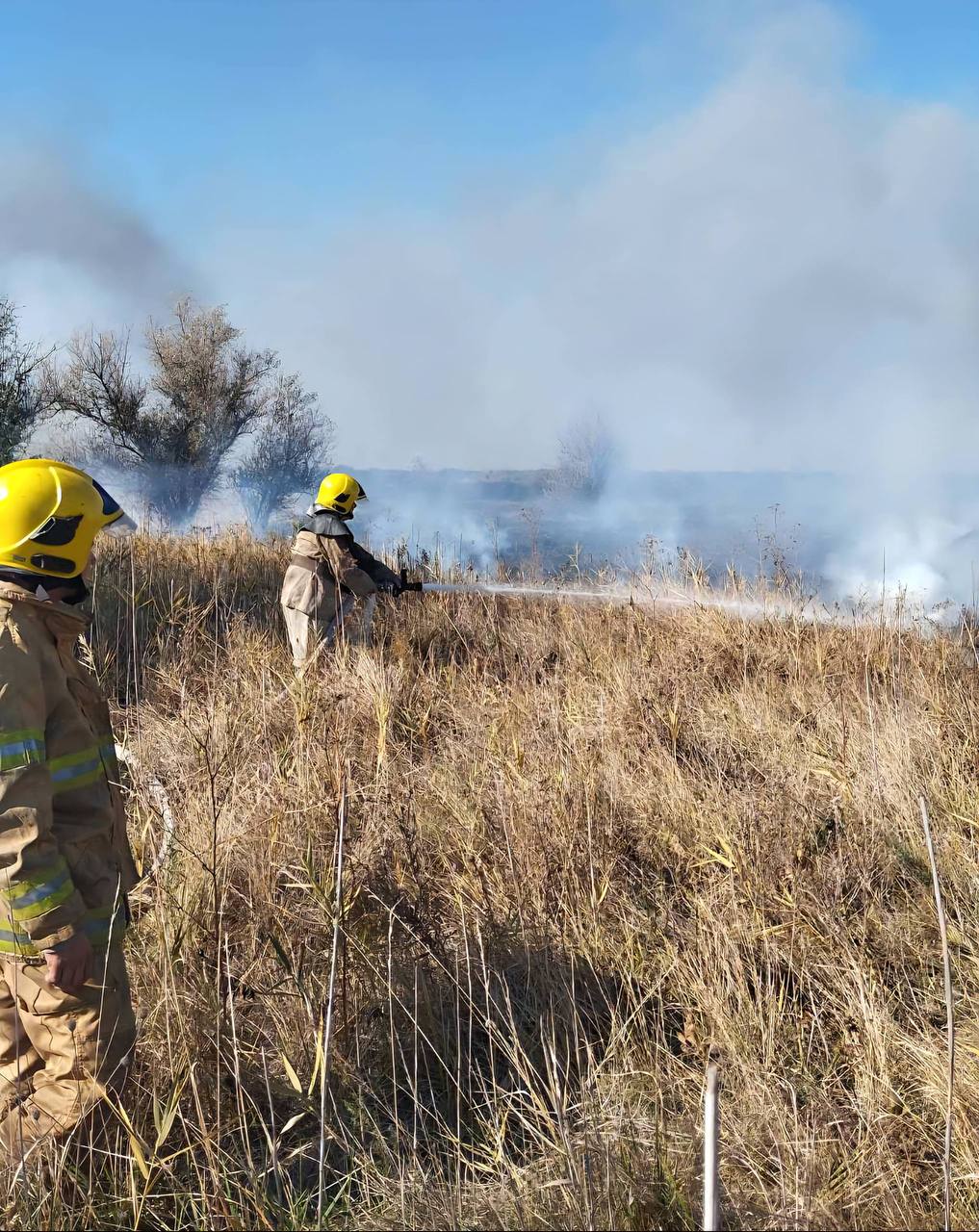
Photo: dneproperatyv
The fire was successfully localized and completely extinguished.
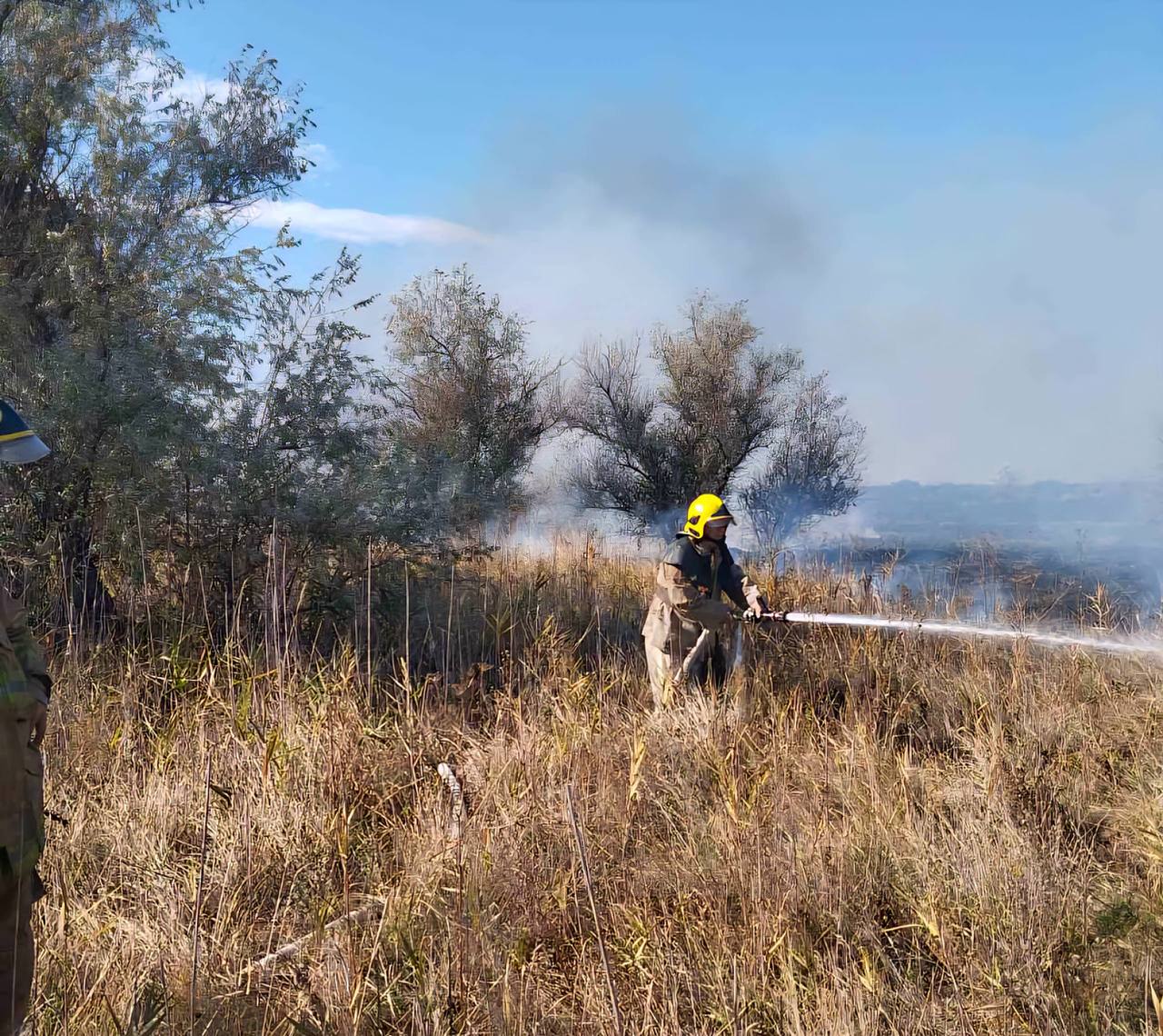
Photo: dneproperatyv
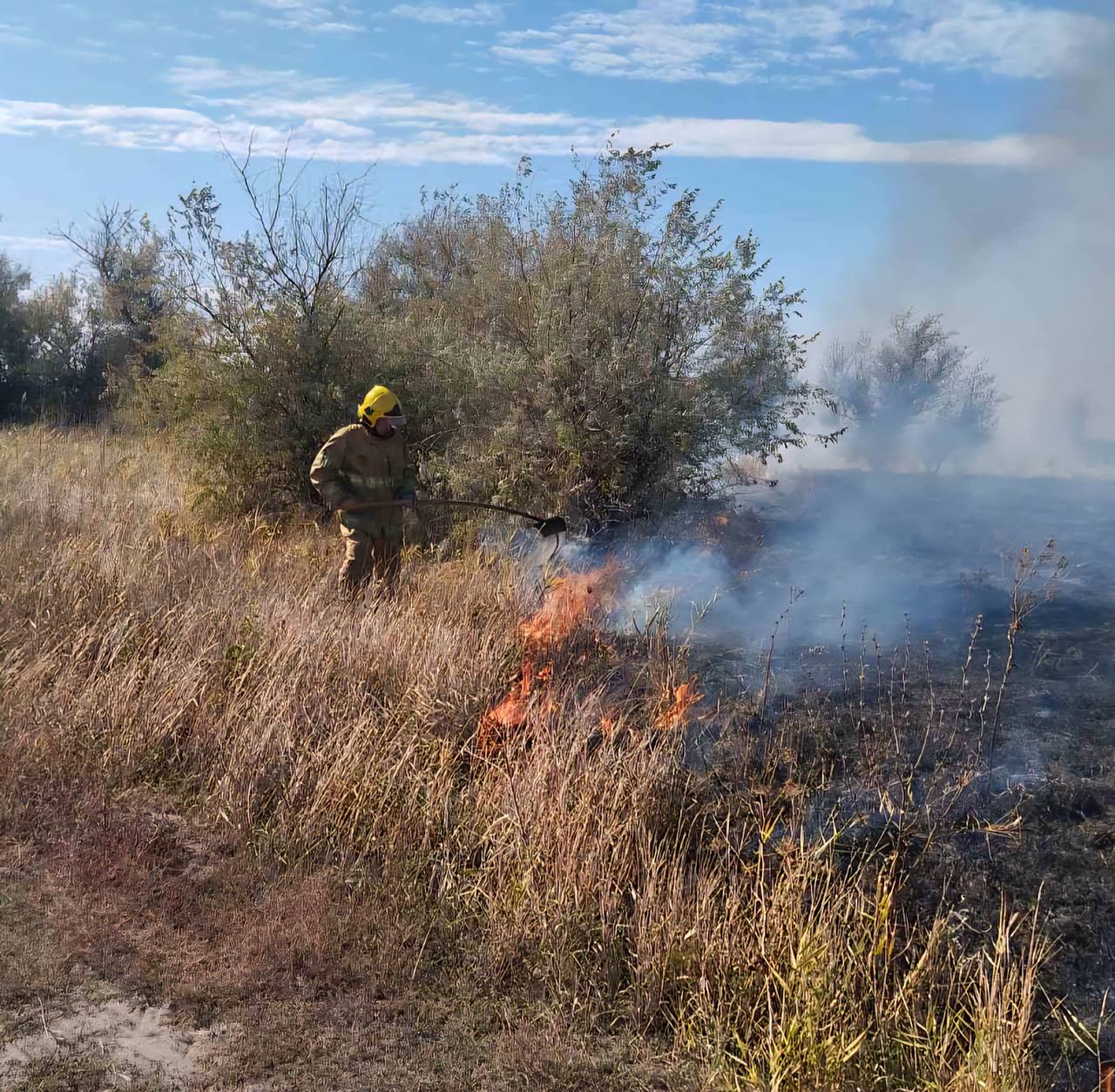
Photo: dneproperatyv
Why you shouldn't burn dry grass
Annual dry grass fires in Ukraine have become a serious environmental problem. Numerous fires break out every year due to the reckless burning of grass and plant residues on fields and roadsides. Such fires often get out of control, cover large areas, destroying vegetation, meadows and pastures, and sometimes even pose a threat to settlements. In particular, smoke from burning grass worsens air quality.
Fire destroys the organic layer of the soil, reduces its fertility and ability to retain moisture, and contributes to erosion. In particular, fires have a negative impact on biodiversity. Many species of plants and animals simply do not have time to recover from fires.
Tips from the State Emergency Service in case of fire detection
1) Call 101 (SES);
2) Report the exact location of the fire, landmarks, size of the fire, and direction of spread;
3) If possible, find out if there are people or animals at risk;
4) Stay away from the fire;
5) Do not attempt to extinguish a large-scale fire yourself without the appropriate equipment;
6) Avoid heavy smoke – use a respirator or cloth to cover your nose and mouth;
7) Notify people nearby to move away from the danger zone;
8) Warn owners of equipment, vehicles and people in recreational areas about the fire;
9) Keep a safe distance;
10) If possible, help rescuers navigate the terrain.
As a reminder, on September 16, a fire broke out on Khortytsia Island in Zaporizhzhia, where shrubs, dry grass and forest litter caught fire on the territory of Khortytsia.
Rescuers had difficulty extinguishing the fire, as Khortytsia Island has a difficult terrain, which makes it difficult for fire trucks to pass. Strong winds and heat also contributed to the fire on the island.
The SES engaged 40 rescuers and 9 units of special equipment to extinguish the fire in Zaporizhzhia. Additionally, representatives of Vodokanal and Krutoyarivske forestry helped to eliminate the fire. As of September 16, at 20:30, firefighters had localized the fire on an area of about 4.5 hectares.

